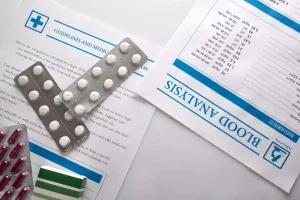
This includes the first few weeks of pregnancy, when you might not even know you are pregnant. “If a pregnant woman with low levels of this enzyme drinks, her baby may be more susceptible to harm because the alcohol may circulate in her body for a longer period of time,” Garry tells WebMD. Alcohol use during pregnancy might affect one baby more than another. You could have one child who is born healthy and another child who is born with problems. There is no known safe amount of alcohol use during your pregnancy or when you are trying to get pregnant.
Ask 3 Questions
In November 2015, the American Academy of Pediatrics (AAP) published a report that focused on recognizing, diagnosing, and treating FASD. The AAP reaffirmed their recommendation that no amount of alcohol should be consumed during any trimester of pregnancy with a video series in 2019. SAMHSA Treatment Locator — FindTreatment.govThe Substance Abuse and Mental Health Services Administration (SAMHSA) has a treatment facility locator.
How Alcohol and Binge Drinking Affect your Pregnancy
Exposure to alcohol during pregnancy causes damage to the brain and these are absolutely preventable effects. They note, on their web sites, that pregnant women who drink alcohol risk giving birth to a child with a fetal alcohol spectrum disorder (FASD). These conditions range from mild to severe and include speech and language delays, learning disabilities, abnormal facial features, small head size, and many other problems. Risky drinking often precedes the use that occurs during pregnancy and accounts for women’s difficulty in attaining abstinence even when they are concerned about risks to the fetus. Children who are suspected of FASDs must be carefully evaluated by a pediatrician, child and adolescent psychiatrist or other medical or mental health clinician.
Healthy lifestyle choices can help control inflammation
- Cleaning dirty litter boxes can put a person at risk of toxoplasmosis.
- However, we have put proactive conservation measures into place to ensure normal operations, always with patient safety as our first priority.
- If you’re pregnant, trying to get pregnant or think you may be pregnant, do not drink alcohol.
- When you get pregnant, it’s important to get regular prenatal care.
However, pregnant patients who choose to drink should understand that any alcohol consumption – not just binge drinking – increases specific risks during pregnancy. There is no known safe amount of alcohol to drink when pregnant. In the United States, exposure of alcohol to the =https://ecosoberhouse.com/ fetus is the most common cause of babies born with birth defects and intellectual disability.
- Ectopic pregnancy occurs when a fertilized egg fails to reach the womb, but instead begins to grow outside of the womb.
- It may also be helpful if you are a partner, relative or friend of someone who is pregnant or planning a pregnancy.
- Drinking heavily during pregnancy can cause fetal alcohol spectrum disorder (FASD) or fetal alcohol syndrome (FAS).
- They were unable to tell any difference between children whose mothers drank low to moderate amounts of alcohol and those who abstained completely during pregnancy.
- Alcohol can cause problems for the baby throughout pregnancy, including before a person knows they are pregnant.
Some pregnant women tell me they feel judged when they have a drink. I am not sure how we got to the point that in May 2016, New York City had to clarify guidelines prohibiting bars and restaurants from refusing to serve alcohol to pregnant women. The guidelines – which also apply to selling and serving foods such as soft cheeses and raw fish – are intended to discourage discrimination against pregnant women.
Binge drinking should be avoided altogether as regular heavy alcohol during pregnancy can have a serious effect on the baby; this is called foetal alcohol spectrum disorder (FASD). It can also cause premature births or low birth weight babies. The trouble with guidelines that recommend total abstinence is they don’t involve nuance. There are certainly women who truly have a problem with alcohol and whose drinking puts their babies at risk. For women who do not have an unhealthy relationship with alcohol and who want to have a drink on a special occasion, they shouldn’t fear being judged or have others make that decision for them.

Getting help to stop drinking alcohol

Most pregnant people can continue their everyday activities and only make minor lifestyle changes. A person typically needs to avoid alcohol, smoking, and certain foods and activities that may potentially harm the developing fetus. A long-form video appeals alcoholism symptoms to a broad audience of people who can impact decisions about alcohol use during pregnancy (e.g., partners, grandparents) as well as patients of reproductive age. This animated video can be shared on digital monitors in clinical office waiting areas and through healthcare professionals’ usual digital patient communication formats. For example, it could be a link in text message reminders, clinic websites, patient portals, or social media posts.
Fetal alcohol exposure is often missed as the cause of the problems in a child’s behavior. The effects of alcohol on the developing brain during pregnancy are not reversible. However, early intervention can improve the chances of success for the child. Examples of early interventions for FASDs include occupational therapy, special educational services starting as early as preschool, mental alcohol during pregnancy health evaluation and support and speech therapy services. The CDC reports that there was no change in the number of pregnant patients who report drinking from 2019 (pre-pandemic) to 2020 (the first year of pandemic).

Is it safe to drink alcohol when pregnant?
This is predominantly a risk in the first trimester but may cause problems later in pregnancy as well. Talk to your midwife or doctor who will be able to advise you. March of Dimes leads the fight for the health of all moms and babies. Your baby does not have a fully developed liver and cannot process alcohol. Marjorie Greenfield, MD, professor of obstetrics and gynecology, Case Western Reserve University School of Medicine; author, The Working Woman’s Pregnancy Book. Some women may have been reassured by a study that was published in October 2010 in the Journal of Epidemiology and Community Health.
- The best way to keep your baby safe is to avoid drinking any alcohol when you are pregnant and to get the right support to stop drinking, if you need it.
- However, they also observed an increased rate of cannabis and tobacco use, as well as increased depressive symptoms and financial difficulties in patients who consumed cannabis or tobacco during pregnancy.
- Drinking alcohol during pregnancy can cause fetal alcohol spectrum disorder or fetal alcohol syndrome, a severe, irreversible developmental condition.
- The standard advice is for people to abstain from alcohol during pregnancy.
- On that note, it also seems that the U.S. health care system is not operating the way it should in supportively, proactively providing help to women who are or may be struggling with alcohol use.
Financial barriers—including costs and lack of insurance coverage—were the most frequently cited reason for not receiving treatment across our entire study population. Treatment not being a priority—including women’s belief they could handle their alcohol use on their own or didn’t have time, desire, or faith in treatment—was the next most common reason. Access barriers—including lack of transportation, treatment options being unavailable or programs being too full, or lack of knowledge of where to seek treatment—and stigma were next most common. Access barriers and stigma were more frequently cited by pregnant and parenting women. After the first trimester, pregnant people should avoid any activity that carries the risk of falling. Some experts believe that quantities greater than this can be harmful to the fetus and may increase the risk of pregnancy loss and low birth weight.